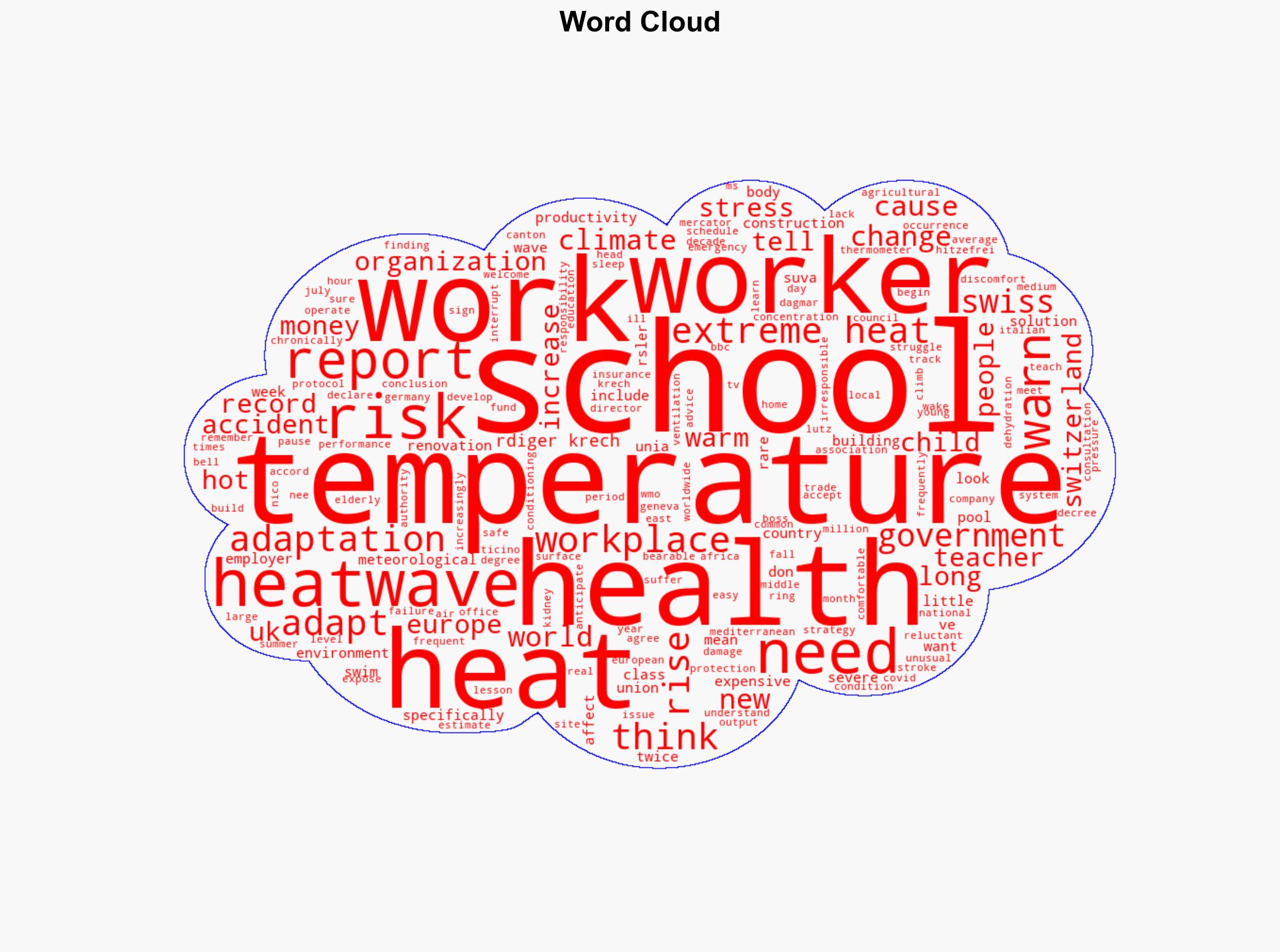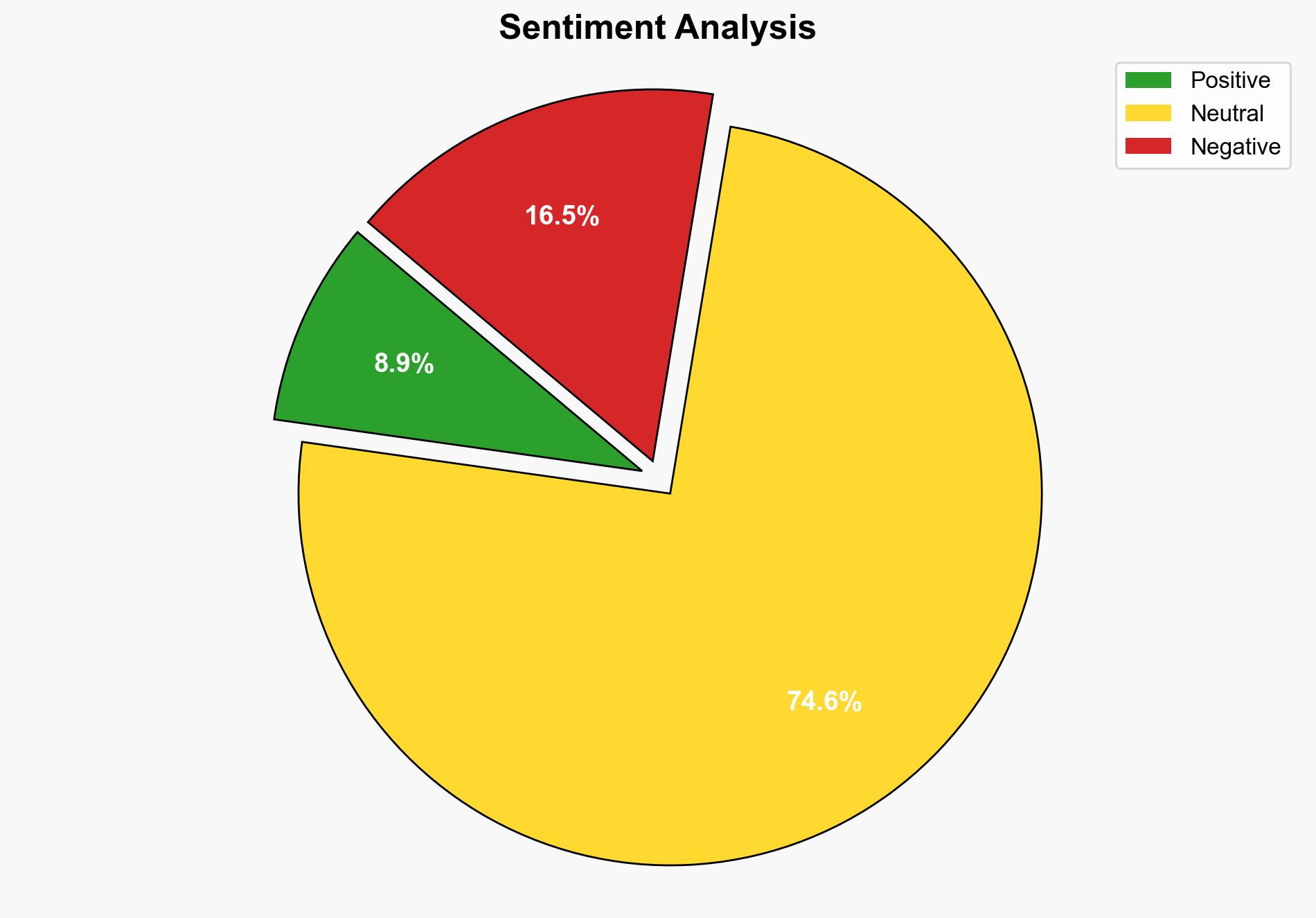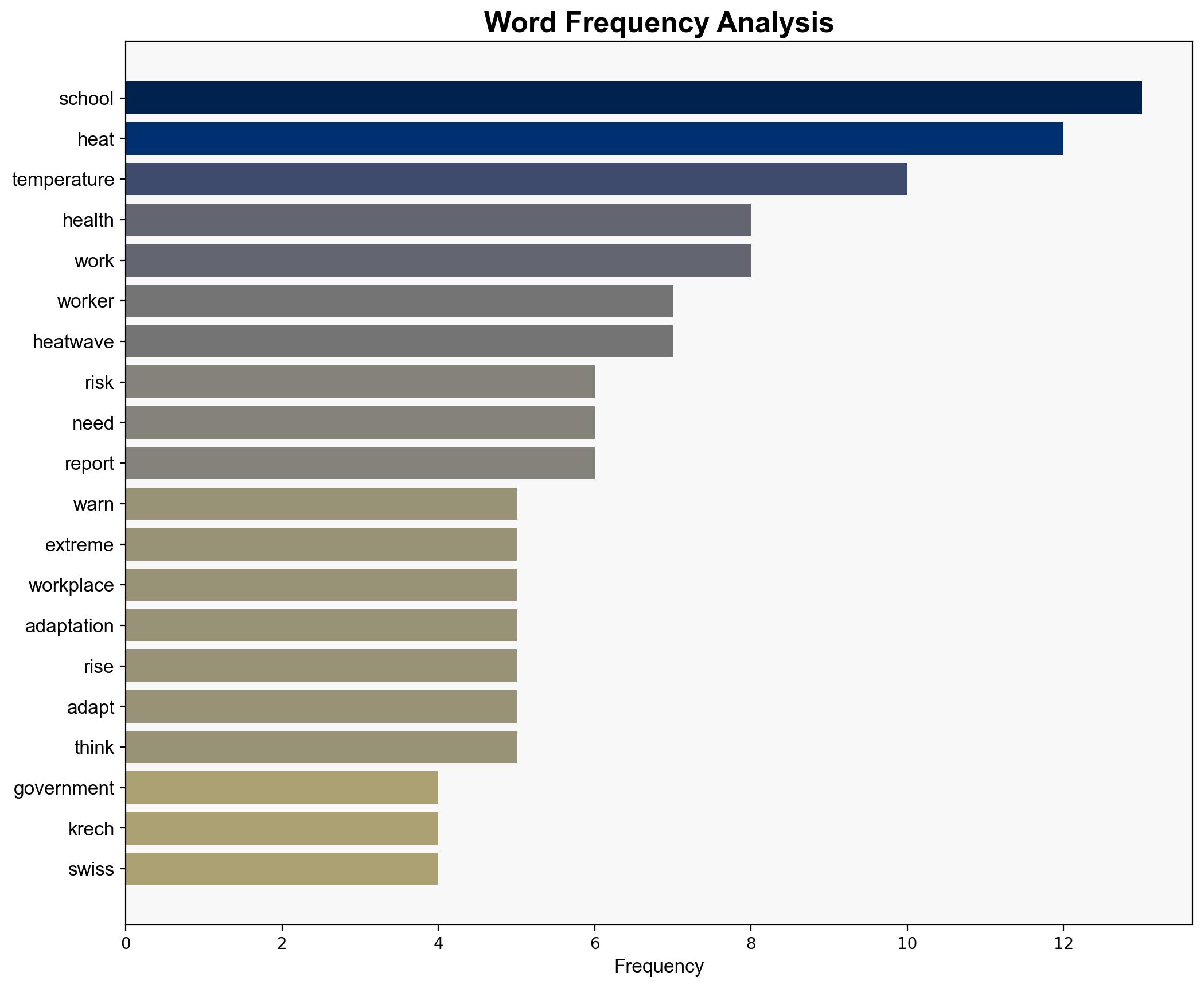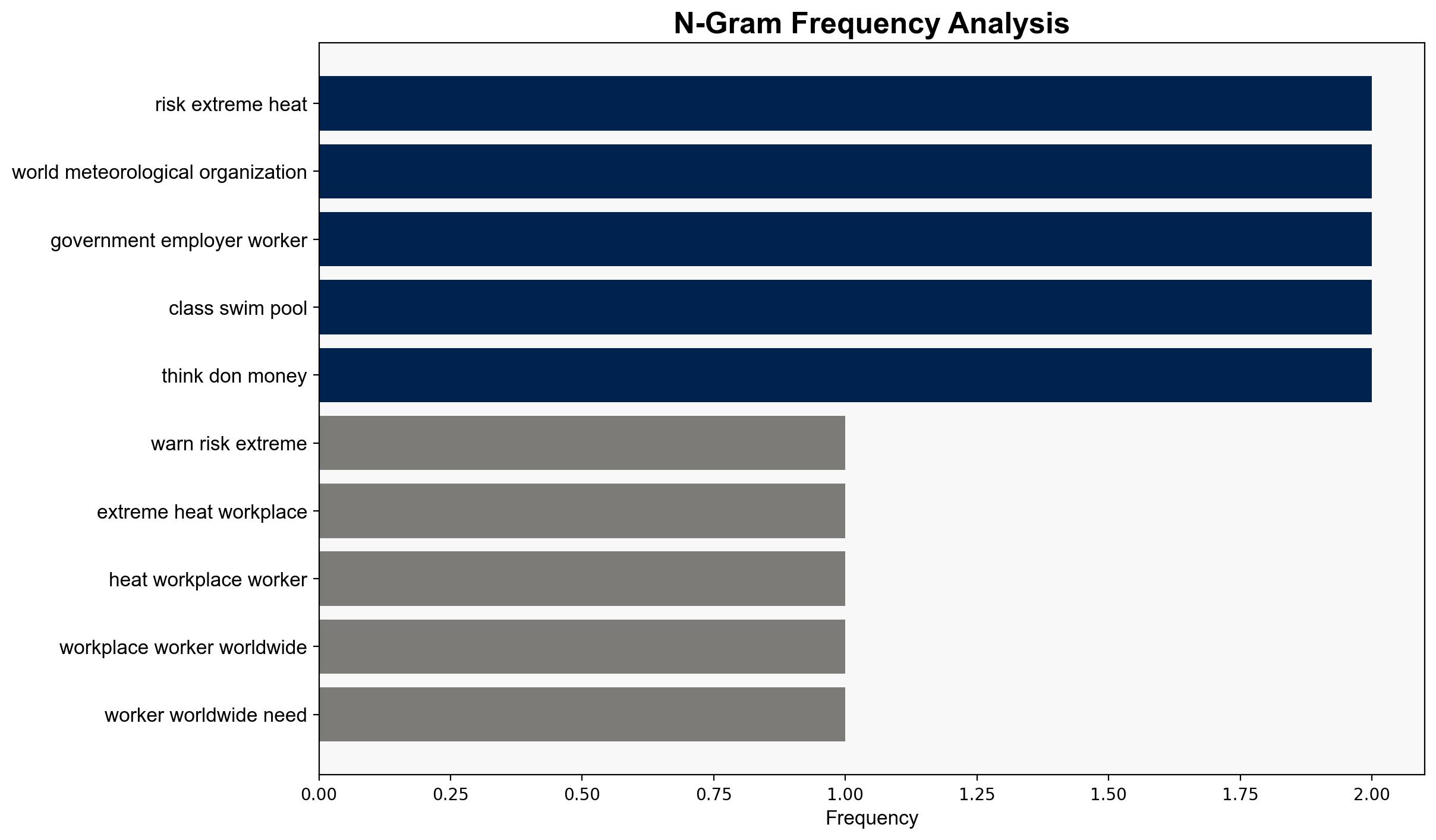WHO warns of risks of extreme heat in the workplace – BBC News
Published on: 2025-08-22
Intelligence Report: WHO warns of risks of extreme heat in the workplace – BBC News
1. BLUF (Bottom Line Up Front)
The most supported hypothesis is that extreme heat due to climate change poses significant health and productivity risks in workplaces globally, necessitating immediate adaptation strategies. Confidence level: High. Recommended action: Governments and organizations should prioritize investment in adaptation infrastructure and policies to mitigate these risks.
2. Competing Hypotheses
1. **Hypothesis A**: Extreme heat is a growing threat to workplace safety and productivity, requiring urgent adaptation measures.
– **Supporting Evidence**: Reports from WHO and WMO highlight increased frequency of heatwaves and their impact on health and productivity. Specific examples include increased workplace accidents and reduced productivity in Europe.
2. **Hypothesis B**: The threat of extreme heat is overstated, and current workplace safety measures are sufficient.
– **Supporting Evidence**: Some regions may already have effective heat adaptation strategies in place, such as emergency decrees and adjusted work schedules in Switzerland and Italy.
Using ACH 2.0, Hypothesis A is better supported due to the breadth of evidence from multiple regions and authoritative sources indicating widespread and increasing risks.
3. Key Assumptions and Red Flags
– **Assumptions**: It is assumed that climate change will continue to exacerbate heatwaves and that current adaptation measures are insufficient.
– **Red Flags**: Potential over-reliance on European data may not fully represent global conditions. There is also a risk of underestimating the adaptability of certain industries or regions.
– **Blind Spots**: Lack of detailed data on adaptation success stories or innovations from non-European countries.
4. Implications and Strategic Risks
– **Economic Risks**: Decreased productivity and increased healthcare costs could strain economies, particularly in regions heavily reliant on outdoor labor.
– **Geopolitical Risks**: Disparities in adaptation capabilities may exacerbate regional inequalities, leading to potential social unrest.
– **Psychological Risks**: Prolonged exposure to extreme heat may lead to increased stress and mental health issues among workers.
5. Recommendations and Outlook
- Governments should invest in infrastructure improvements, such as better ventilation and air conditioning in workplaces and schools.
- Develop international guidelines for workplace safety in extreme heat conditions.
- Scenario Projections:
- **Best Case**: Successful adaptation leads to minimal disruption and improved worker safety.
- **Worst Case**: Failure to adapt results in widespread health crises and economic downturns.
- **Most Likely**: Gradual adaptation with periodic disruptions as new heat records are set.
6. Key Individuals and Entities
– Rüdiger Krech
– Dagmar Rösler
– Nico Lutz
7. Thematic Tags
climate change, workplace safety, public health, adaptation strategies





